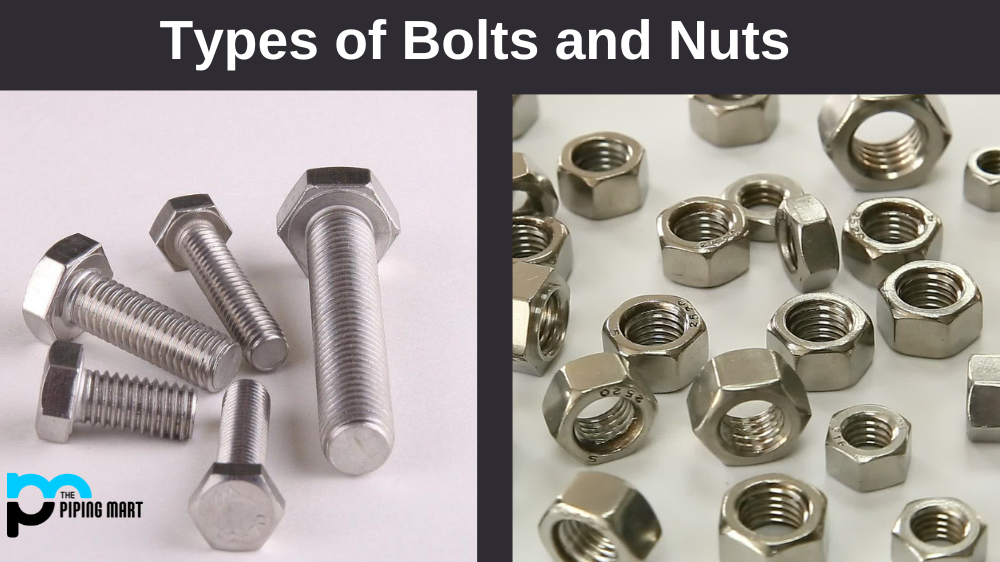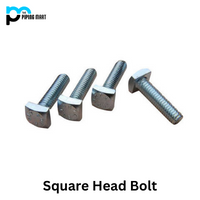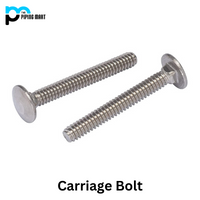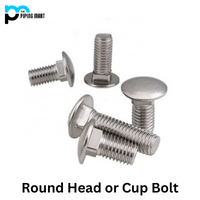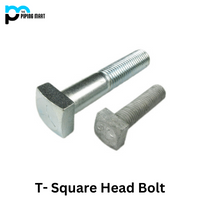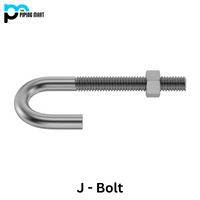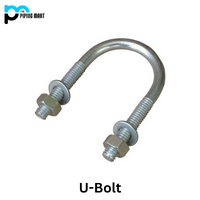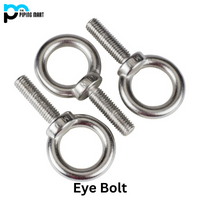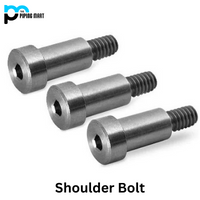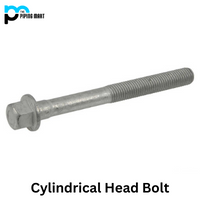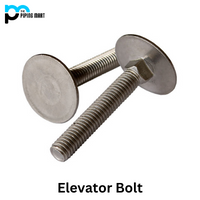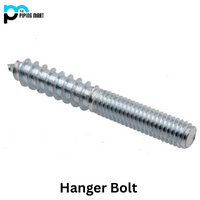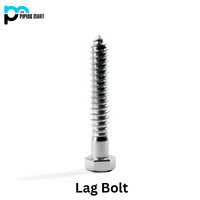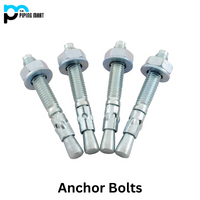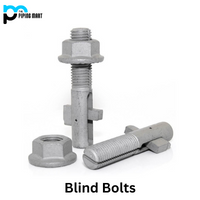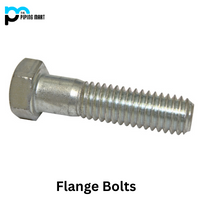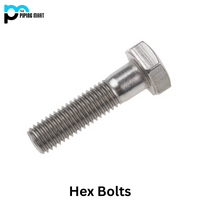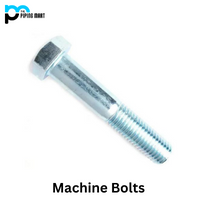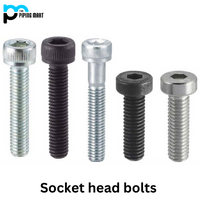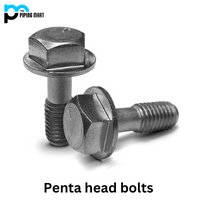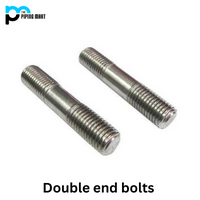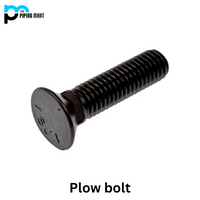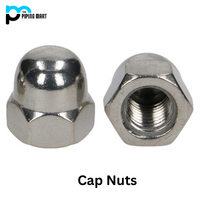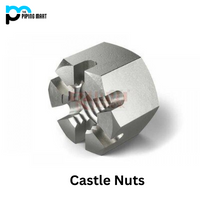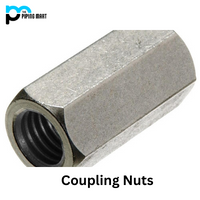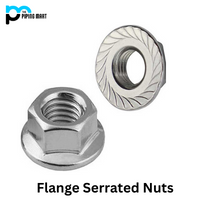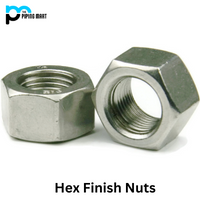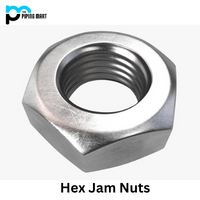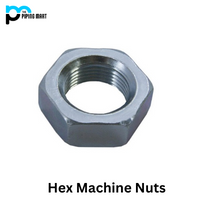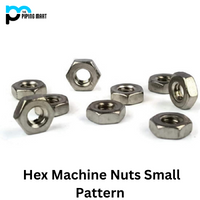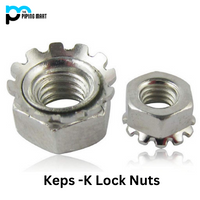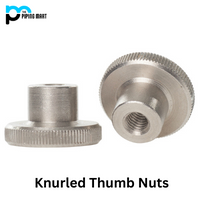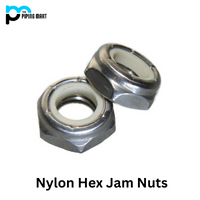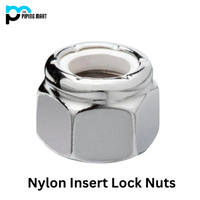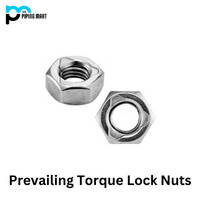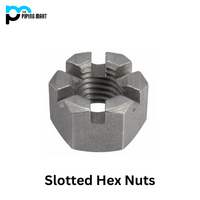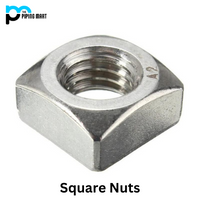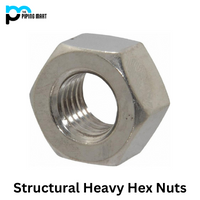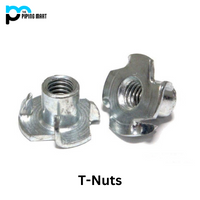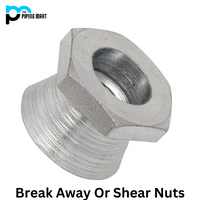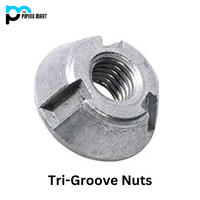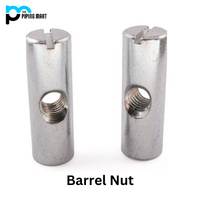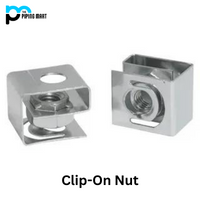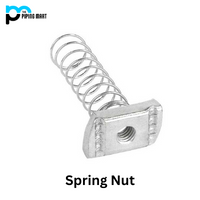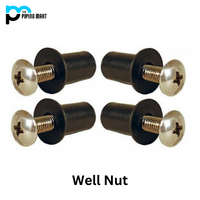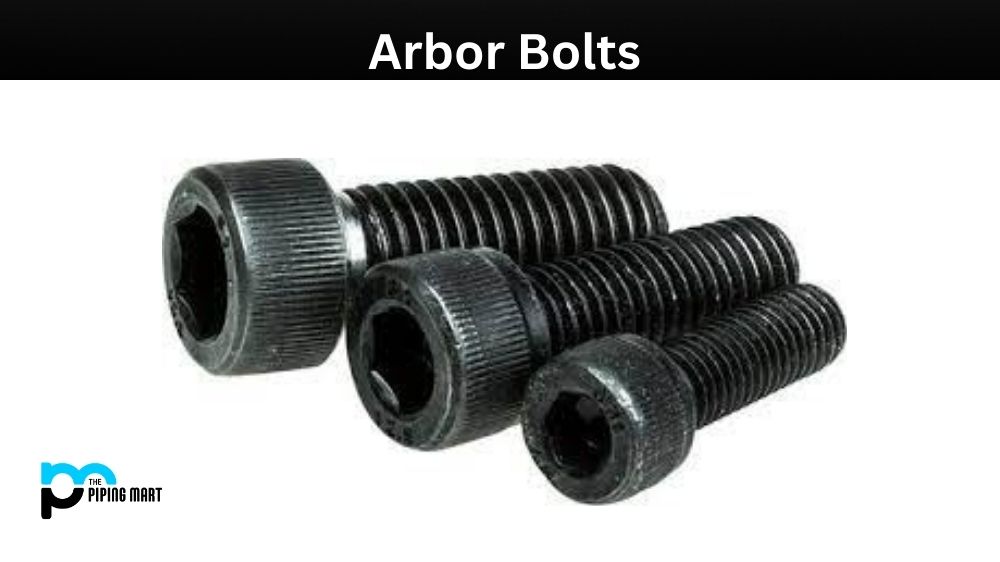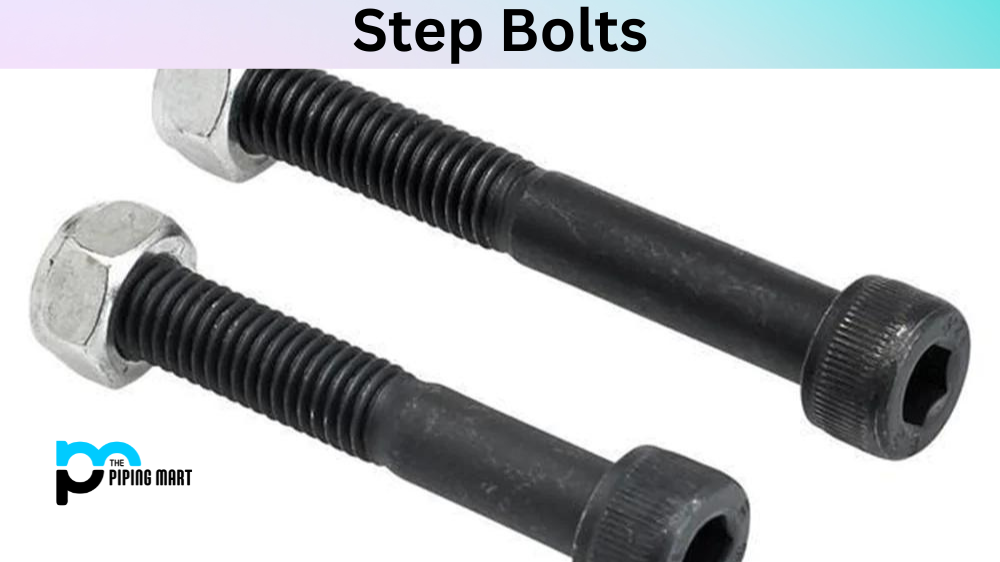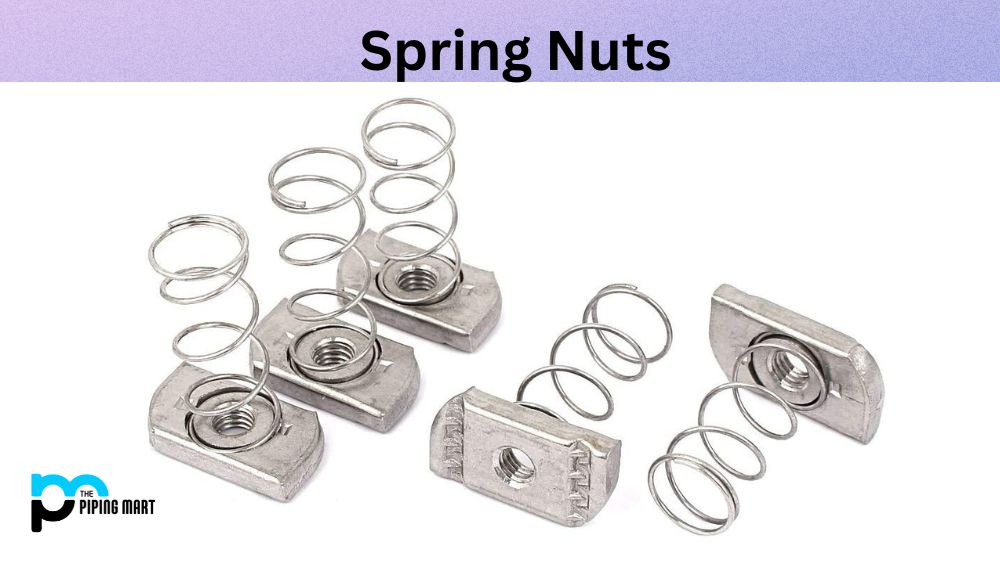Whether you’re a professional engineer, a hobbyist working in the garage, or just want to learn more about DIY projects, it’s important to know the basics of bolts and nuts. Fasteners such as bolts and nuts are essential components that are used across many industries – from automotive repair and furniture building to construction – for joining together two (or more) pieces of material. With so many types available, understanding their differences is key to ensuring that your project turns out exactly how you envisioned it! In this blog post, we’ll discuss all the different types of bolts and nuts to ensure that whatever job you need to be done requires only the right type of what will hold your items firmly together–bolts and nuts!
Types of Bolts and Their Uses
Bolts are critical fasteners that provide strong support for bolted joints. Bolts come in many shapes and sizes, from tiny machine screws used to secure delicate machinery to huge anchor bolts used to support entire buildings. Depending on the purpose, bolts may be classified as structural, machine, woodworking or special application bolts. Structural bolts are made of steel and grade A325 or A490 material; they are commonly used in construction applications such as fastening metal studs together and connecting steel columns to concrete beams. Machine bolts derive their strength from rolled threads and can handle higher tension loadings than standard nuts and bolts. These are often found securing bearings in motors and other pieces of machinery. Woodworking bolts have shorter shanks and finished heads with square or hex sockets; these are ideal for attaching wood components to each other and work extremely well in projects like furniture assembly. Special-application bolts may include clinch studs, which are bell-shaped swage studs used for extra gripping power when connecting bracing members to an a structure; lag screws which feature wedge ramping along the threads for extra holding power; as well as clevis pins designed for heavy duty applications like creating strong linkages between two pieces of equipment. No matter what type of bolt is needed, there is sure to be one made specifically for the job at hand!
Hexagonal Bolt
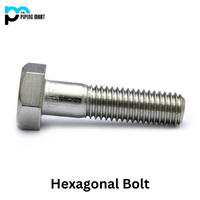
Square Head Bolt
Square head bolts are an ideal fastening solution for many applications, such as furniture assembly and machine construction. Usually made from steel or stainless steel, they come in a variety of sizes and lengths and are secured using a square nut or threaded into a tapped hole. Square head bolts have many advantages over the more commonly used hex head bolts. They provide the same level of security but with greater surface contact due to their unique shape, which distributes force evenly across a larger area. This makes them an ideal choice for heavy-duty construction work and anything that has high vibration levels, as it reduces the chance of bolt loosening or failure. Additionally, square head bolts can provide higher clamping forces than slotted screws, making them difficult to remove once installed, adding to their overall appeal for industrial purposes.
Carriage Bolt
A carriage bolt, also known as a coach bolt, is a useful fastener used in woodworking and construction. Carriage bolts are easily identified by their smooth, round heads with no head markings and the square neck directly underneath the head that keeps the bolt from spinning when being inserted into the wood. They have a large diameter shank which provides great strength when placed in wood frames or hardwoods, and they often include a plain-metal washer to protect against over-tightening. Many builders prefer using carriage bolts for joints because it creates an attractive flush surface with no external nut showing on either side of the joint. For increased safety and security, most carriage bolts come with hex nuts underneath the head — to prevent them from backing out — but still provide strength without requiring additional tools.
Round head or cup bolts
Round head or cup bolts are a popular item for construction, repair, and other needs. The round head offers a seamless look, as well as an even grade of strength and corrosion resistance throughout the length of the bolt. The variety of sizes available makes them perfect for many applications, from basic household repairs to large-scale industrial building projects. With their cost effectiveness, durability, and strength, round head or cup bolts are an excellent option when considering fastening solutions.
T-Square Head Bolts
T-Square Head Bolts are a type of fastener that is perfect for a wide variety of applications. Their unique shape allows them to stay securely in place when used in anchoring heavy items while also offering easy access and removal. They’re particularly popular among industrial workers as they provide both strength and convenience. As well these bolts come with a range of finishes, including black oxide, steel zinc, phosphating, and even stainless steel, making them resistant to corrosion and rust. No matter what the specific application may be, T-Square Head Bolts are sure to offer reliable performance with their superior design.
J-Bolt
J-Bolt is a revolutionary fastening solution that is providing engineers with a much-needed shortcut in the design process. It eliminates the time-consuming steps of trial and error which are involved with traditional fastener designs by using an optimized real-time moment calculation and custom bolt geometry. Because of the interactive feedback, J-Bolt allows engineers to quickly and accurately modify components for a wide range of applications without the risk of potential mistakes. This not only saves valuable time but also provides cost savings from reducing unnecessary fastener inventory. J-Bolt is revolutionizing how engineers approach fastening solutions and will no doubt be an essential part of any future project.
U-bolts
U-bolts have been used since the 19th century for suspension systems and cargo handling in the transportation industry. This versatile bolt can serve a variety of applications that involve clamping and securement to tubing or pipe, with its distinctive U-shape helping to secure it in place. U-bolts are popular with automotive repair shops as well, often used to secure brackets, exhaust systems, and other components. An experienced mechanic knows that U-bolts should always be rated for the correct size, torque, and material specifications to ensure they are properly used and function reliably. Selecting the right type of U-bolt is an essential part of any mechanic’s small but essential toolkit.
Eyebolt
An eye bolt is an essential piece of hardware for any DIY enthusiast or professional handyman. It’s a rod-shaped metal fastener that has a loop at one end and threads on the other. Eye bolts are typically used to hang objects from the ceiling, attach items to walls, or secure equipment from movement. An eye bolt is incredibly versatile and can be made from stainless steel, zinc-plated steel, heat-treated steel, or brass – depending on the job being done. Not only is it a great tool for hanging things up safely, but with its size and strength, it also provides additional support on heavier items as well. With an easy installation process, it’s no wonder that the eye bolt has become such a popular choice for many home improvement projects.
Shoulder bolts
Shoulder bolts, also known as stripper bolts, are one of the most versatile types of fasteners available. Not only can they be used to secure a variety of objects together, they come in a wide range of sizes and styles to accommodate almost any task. They have an enlarged shoulder on one end, which prevents them from being driven all the way through the application material. Additionally, their intelligently-designed locking system helps ensure that once tightened properly, they won’t come loose or vibrate off easily. Shoulder bolts are a great choice when superior strength and reliability are needed in an application.
Cylindrical head
Cylindrical head bolts are an essential tool for automotive, marine, and home maintenance. Their unique design allows for increased versatility and ease of use when fastening a variety of different types of materials together. The cylindrical shape creates a strong level of pressure that helps to keep the bolt firmly in place, even under heavy strain. It can be used both indoors and outside, making it more convenient than other types of fasteners that are too large or small for certain jobs. Additionally, they are long-lasting and durable, providing a cost-effective solution to most fastening needs. With the right tools and a little bit of knowledge, you can easily complete any task with a cylindrical head bolt.
Elevator Bolt
If you need fasteners that stand up to extreme temperatures, chemicals, or just everyday wear and tear, elevator bolts are a great choice. Easily recognizable by their rounded machine screw threads and blunt point, they’re perfect for when bolting two pieces of material together while maintaining an even grip on all surfaces. Their unique design makes them ideal for high-vibration environments such as construction projects or industrial equipment. They also come in a wide range of sizes and types to fit the requirements of any project. Additionally, since they’re relatively easy to install, the cost savings associated with Elevator bolts can add up quickly!
Hanger bolt
A hanger bolt is a type of fastener that has increased usage in the construction industry over the years. It is versatile, consisting of a lag thread on one end and a machine thread on the other. With the dual purpose of both holding and hanging components, it makes for an efficient and reliable way to attach pieces of material in various applications. Hanger bolts also have a unique look which often adds style and flair to whatever they are securing. While they may appear intimidating to install at first, following the right steps always results in success. If you’re looking for an easy way to securely attach two pieces of material together, consider using hanger bolts.
Lag bolts
Lag bolts are an essential construction fastener used for applications where a strong and reliable connection is needed. Made from hardened steel, lag bolts create the necessary tension required for heavy-duty joining with the wood, not just to hold it tightly but to give it an evenly distributed strength. Though stronger than other conventional screws, lag bolts must be placed accurately and used with the corresponding size of washers in order to get the maximum benefit from their superior resistance capacity. These bolts also provide protection against increased vibration as well as potential corrosion, making them ideal for outdoor use, particularly where there are expansive temperatures and high moisture levels. With their impressive strength-to-density ratio, lag bolts easily make the grade when it comes to safeguarding superior construction integrity and stability.
Anchor bolts
Anchor bolts are an important aspect of any building project. Their primary function is to firmly connect two objects, or structures, together. Anchor bolts are used to fasten one structure to a concrete base, such as a wall mount or post mounting. They come in a variety of shapes and sizes and are made from several different materials depending on the application. When installed correctly, anchor bolts provide a strong connection that can withstand adverse weather conditions and heavy pressures. These bolts ensure the stability of large-scale projects like construction sites, bridges, and stadiums by effectively transferring stress to the support foundation without risking weak spots. No matter the size of your project, anchor bolts are an integral component!
Blind bolts
Blind bolts are incredibly useful fasteners for many applications. Blind bolts are easily installed into blind holes in thin or thick materials and can be used to attach metal objects to a variety of substrates ranging from wood to plastic and even glass. Using a specialized installation tool, the bolts expand behind the wall to create a secure bond while ensuring that fastener movement is prevented. Overall, blind bolts provide owners with the ability to damage-free installations, as well as increased safety due to their secure hold on both thin and thick materials. Whether you’re looking for greater security or fastening strength, blind bolts provide the perfect solution.
Flange bolts
Flange bolts are becoming increasingly popular in the engineering and construction industries. Their design combines a washer-like shaped base with a bolt attached to it, creating an extra layer of support when connecting two components together. This additional support prevents the nut or bolt from loosening due to vibration or cycling loads that occur during normal operation or while the system is inactive. Flange bolts also allow the flexibility of using varying sizes depending on the application, making them one of the most versatile and widely used fasteners available. With their ease of assembly and customizable nature, flange bolts provide an ideal solution for any engineering project requiring more secure attachment solutions than traditional nuts and bolts.
Hex bolts
Hex bolts have become an essential item in the construction and engineering industry. They are used to fasten and secure materials together, making them a key component in countless projects. Their versatility makes them agreeable with a variety of materials as well, allowing them to act as universal building blocks for construction professionals. Hex bolts provide many advantages compared to other fastening solutions due to their ease of use, proper fit when tightened, and their strength and durability in harsh conditions. Each bolt is made from high-grade steel and crafted with precision for optimal strength and performance, which is why they remain one of the most trusted items in any toolbox.
Machine bolts
Machine bolts are one of the most important fasteners used in various industries. They are easily recognizable, thanks to their domed head and protruding threading. The incredible strength of machine bolts has made them a popular choice in the construction industry, where they play an integral role in joining components effectively and securely. Woodworking is another field that leverages its dependable clamping force when securing pieces together. Machine bolts come in a variety of sizes and styles to accommodate any project, making them a go-to solution for professionals as well as do-it-yourselfers alike.
Socket head Bolts
Socket head bolts are a popular choice for many construction and engineering projects. Their low profile and fast-spinning hexagonal heads offer designers greater flexibility for tight spaces, making them an ideal solution for complicated builds. Socket head bolts have internal drive threading that allows for greater strength and torque, making them an ideal choice for high-load applications such as aviation, military, and nuclear industry projects. Additionally, the smooth surface of socket head bolts provides better thermal insulation compared to slotted or Phillips head bolts, while their stainless steel construction ensures protection from corrosion and rust. Therefore, socket head bolts continue to be a sought-after choice among engineers looking for a reliable solution.
Penta head Bolts
Penta head bolts are a type of fastener that is extremely useful in many industries. Unlike most bolts, Penta head bolts are designed to have five sides for better gripping and more reliable retention than round-headed screws. They are also self-centering, so there is no need for pre-drilled pilot holes, which saves time and energy when installing many types of machinery or equipment. Constructed from strong alloys, Penta head bolts provide superior strength and durability when compared to conventional screws, making them ideal components under extreme pressure in heavy-duty industrial settings. For anyone looking to outfit their operations with dependable fastening hardware that can handle huge loads, Penta head bolts are definitely worth a closer look.
Double end bolts
Double-end bolts are certainly among the most unique and versatile hardware items out there. They feature a combination of two threaded ends, making them a great tool for securing different layers of materials together with reliable strength. Engineered to prevent any type of joint rotation, they can provide secure structural integrity when working with thicker components or objects that require heavier loads. Their convenience and reliability make double-end bolts an attractive option for many types of applications, such as furniture construction, mechanical assemblies, or entrance security systems. An ideal choice for those who are looking for both quality and consistency in fastening their projects together.
Plow bolts
Plow bolts are designed for heavy-duty applications and provide users with ultra-high strength, vibration, and shock resistance. Providing an easier installation than traditional pre-tensioned bolts, plow bolts require minimal torque to install, making them more cost-efficient compared to other high-tensile fasteners. Plow bolts are commonly used in railroad track formations, farming equipment, and performance vehicles due to their wear and corrosion-resistant properties. They are also popular for applications in which a precise fit is needed, as the self-swaging process ensures that the nut contacts the surface evenly. Enjoying a long history of use in many industries, plow bolts have proven their value over time as dependable purveyors of reliability with an ever-increasing list of new uses every day.
Types of Nuts and Their Uses
Nuts are the most commonly used type of fastener, and they come in a variety of shapes and sizes to accommodate different applications. The hexagonal shape of standard nuts allows them to be driven or twisted onto a threaded bolt; locknuts feature an exterior thread that is configured differently than the interior thread, making it difficult for the nut to loosen under vibration or heavy loads; flange nuts have a recessed base that provides additional bearing surface and distributes the load more evenly along the threads; acorn nuts, also known as crown, cap, or dome nuts, feature an enclosed top that gives them a decorative finish. With all these different types of nuts readily available, there’s sure to be one perfect for your fastening needs.
Cap nuts
Cap nuts are an important part of any building project or manufacturing process. Used in the construction of items ranging from furniture to car parts, cap nuts are small but powerful pieces that serve a variety of purposes. As their name implies, these nuts feature a circular “cap,” which helps to protect and prevent nuts from loosening with vibration. Cap nuts come in many different sizes and materials, adding flexibility and reliability to whatever project they are being used for. Not only do cap nuts help keep fasteners together, but they also give your finished product a more attractive look with the added internal structure of their unique design. No matter what you’re working on, if you need something strong and reliable to hold it together -and look good- then you can find no better tool than a cap nut.
Castle nuts
Castle nuts, also known as slotted or cotter nuts, are a simple yet effective way to prevent fasteners from loosening over time. These nuts feature a small slot that is designed for the insertion of a cotter pin. By using this combination, it helps keep those components from backing off due to vibrations or other external forces. With its unique shape, combining smooth and flat sides with slots along the outer circle, it facilitates easy installation and removal when necessary. Castle nuts have been frequently used in the past because of their cost-efficiency and ability to secure components practically without fail. Commonly found in automotive applications, castle nuts are essential for maintaining secure fastener connections in almost any application.
Coupling nuts
Coupling nuts are an essential item for any warehouse, for they make secure connections between two fasteners. They can also be used in a variety of projects ranging from furniture assembly to mounting a television set on the wall. Coupling nuts are located at most hardware stores and come in varying sizes, depending on the size of your fastener. If you need to make a secure connection between two pieces, whether it be for commercial or home use, using coupling nuts is one of the safest and most dependable options available.
Flange Serrated Nuts
Flange serrated nuts are a convenient solution to many complex fastening projects. Constructed with a built-in washer, these nuts compress both soft and hard materials, forming a strong and airtight bond that is safe for a range of applications. By creating a seal between two surfaces, flange serrated nuts prevent toxins from escaping where they could harm the environment or workers. In addition, their anti-vibration strength ensures that parts won’t come loose over time. No matter what your project needs, flange serrated nuts provide an innovative yet dependable solution.
Hex finish
Hex finish nuts are an essential part of industrial engineering and come in a variety of shapes and sizes for specific tasks. Hex finish nuts have a hexagonal shape with threads on the inside, allowing them to be tightened or loosened using tools such as wrenches and ratchets. These nuts are designed to mechanically hold two pieces together, providing a high level of stability when joining two different surfaces. When used properly, hex finish nuts ensure that the connection between two components is secure, reliable, and long-lasting. They are resistant to wear and tear, making them great for high-stress applications like industrial machinery and custom vehicle builds. Hex finish nuts may not seem very exciting compared to other pieces of hardware, but they are absolutely vital when it comes to ensuring safety while working with heavy equipment.
Hex jam
Hex jam nuts are an essential fastening solution in many industries, providing the stable and secure connection necessary to ensure proper function. These nuts feature internal threads that easily affix to studs, bolts, and other male fastening components. A hexagonal shape allows for a simple but reliable grip when applying torque to tighten or loosen them. In some applications, jam nuts provide additional locking action as well, allowing users to achieve a much higher degree of fastening confidence with fewer required components. This makes for fewer total parts and lower weight, which is always a plus for engineering projects that require tight space constraints. Hex jam nuts may be overlooked by some compared to their more ornate peers, but they remain a go-to enhancing solution for countless industries.
Heavy Hex Nuts
Heavy Hex Nuts are becoming increasingly popular for the ultra-industrial construction projects of modern times. They are the go-to choice for situations requiring higher stresses and greater levels of tension than other types of nuts are able to provide. Heavy hex nuts have a longer, thicker body structure compared to general-purpose nuts, which creates a larger contact area with surrounding surfaces, giving them more stability and better load-bearing capabilities. In addition to their incredible strength, heavy hex nuts offer an additional layer of safety by creating a secure fit with fewer opportunities for loosening over time. As one can see, these highly efficient nuts are essential components invaluable to modern engineering endeavors.
Hex machine Nuts
Hex machine nuts are essential components of everyday machines and equipment. They provide a firm hold and strong connection between two objects in order to secure them in place and ensure the machine keeps running properly. Hex machine nuts are relatively easy to install, yet they offer robust performance that is widely trusted by mechanics, engineers, and DIY enthusiasts the world over. With many different materials available, they can be adapted for various environments in order to meet different needs and requirements – from electrical connectors at home to heavy-load appliances in industrial settings. Hex machine nuts prove that sometimes simple solutions are still the best!
Hex Machine Nuts Small Pattern
Hex Machine Nuts Small Pattern is an innovative product that offers a variety of benefits to businesses and factories. It makes assembling equipment and machinery much easier, eliminating the tedious process of manually tightening pieces together. Furthermore, its small pattern allows for greater maneuverability in tight spaces—which is often essential in a factory setting. From its convenience to its design efficiency, Hex Machine Nuts Small Pattern provides businesses with simple yet effective solutions for workplace problems.
Keeps-K Lock Nuts
Keps-K Lock Nuts are the perfect solution for many projects with heavy equipment. The superior design of these nuts ensures a much more secure fit than standard nuts, saving time and money. They also eliminate the need for any additional tools to apply and remove; simply use a hex key to easily attach or release them. Not only are Keps-K Lock Nuts easy to install and remove, but they are also highly resistant to the vibration that could loosen up standard bolts–making them ideal for machines that run continuously at high speeds in industrial settings. Thanks to their long-lasting design and unbeatable reliability, Keps-K Lock Nuts offer you peace of mind on any project.
Knurled thumb nuts
Knurled thumb nuts are a handy and intuitive fastening tool that makes securing objects together simple and efficient. These nuts feature cylindrical bodies with knurling along their surface to enhance finger grip, allowing for easy hand-tightening without the need for tools; perfect for situations without access to a socket or wrench. Furthermore, these practical components can be used in both indoor and outdoor applications due to being constructed from corrosion-resistant materials such as zinc-plated steel or stainless steel. With the added convenience of being available in multiple sizes, knurled thumb nuts are an indispensable asset for any do-it-yourselfer.
Nylon hex jam nuts
Nylon hex jam nuts are an essential component of any job or project requiring precision work. These small yet powerful tools are made from a durable grade of nylon and have a hexagonal form which guarantees a tight, snug fit every time they are used. They are also incredibly versatile and can be used in almost any type of industry due to their strong grip and long-lasting performance. Thanks to these amazing properties, nylon hex jam nuts have become the go-to choice for countless professionals across the world who need reliable results on the job.
Nylon Insert Lock Nuts
Nylon Insert Lock Nuts are a great addition by fasteners specialists to the vast array of products available. These nuts come with a nylon insert that helps to lock onto the threads of the most demanding bolts and screws, providing extra levels of safety and security. The extra-strength nylon corresponds perfectly with the surrounding threads of your bolts or screws, making these nuts highly resistant to getting loose due to vibration or corrosion. With an improved grip and more reliable holding abilities, choose Nylon Insert Lock Nuts for all your fastening needs.
Prevailing torque lock nuts
Prevailing torque lock nuts have a great many uses in both industry and home projects. These rugged fasteners secure threaded connections with an adjustable clamping force that resists loosening and vibration, making them ideal for applications requiring environmental safety or repeated disassembly and reassembly. A unique feature of prevailing torque lock nuts is their cold-formed characteristics which not only provide excellent reusability and up to 80% of the strength of their thermal alternatives but also negate the need for a separate locking washer. Additionally, they are available in a variety of sizes and materials, from stainless steel to nylon-inserted steel, making them suitable for almost any application where a sturdy connection is called for.
Slotted Hex Nuts
Slotted Hex Nuts are a great fastening option, allowing for a reliable and secure hold with minimal fuss. These nuts are usually made from strong, durable stainless steel, ensuring that they can withstand any conditions thrown their way. Slotted Hex Nuts also have the added benefit of not requiring additional tools, such as wrenches or Allen keys, to be tightened or loosened – simply turning them by hand is enough to get the job done. This makes them particularly convenient in situations where convenience and speed are crucial. Whether you need to fix something quickly around the house or on the job site, Slotted Hex Nuts provide an ideal solution for all kinds of fixing needs.
Square nuts
Square nuts are specialty nuts used for many applications across a variety of industries. Primarily, these square-shaped fasteners are used to provide greater load bearing; their structure distributes the load of whatever it is holding in a more uniform way than a standard rounded nut. Due to this increased stability, square nuts tend to be better suited for especially tight spaces or complex assemblies than other types of fasteners. Additionally, they offer more grip and less risk of rotation when engaged with the appropriate bolts, making them an effective choice for projects requiring high levels of precision. Overall, the square nut is an underrated yet invaluable tool for numerous construction and DIY situations.
Structural Heavy Hex
Structural Heavy Hex nuts are an essential part of modern building construction. These metal fasteners resemble traditional hex nuts but feature a thicker build allowing them to withstand higher tension in heavier load applications. Structural heavy hex nuts are designed to fit easily into drilled or tapped holes and can be used in combination with structural bolts and accompanying washers to create tight and secure stable connections for everything from bridges to highway guard rails. When sea level is a priority, the additional stability offered by structural heavy hex nuts makes them ideal for any projects requiring a particularly strong connection.
T-Nuts
T-Nuts are an invaluable tool in many industries. They consist of a metal block with four or more evenly spaced projections meant to be embedded into an object for mounting and fastening purposes. These nuts offer exceptional stability and strength when used correctly, making them suitable for use in both light and heavy-duty projects. T-Nuts can also be easily adjusted, enabling multiple components to be attached to one object. As such, they are perfect solutions for applications that require reliability, flexibility, and convenience. From household tasks to industrial needs, T-Nuts provide the secure fit needed on different materials, allowing projects to be finished with trustworthiness at their core.
Break away or shear nuts
As electrical work has evolved over time, so too have the tools and fasteners used in applications. Breakaway or shear nuts are an ideal solution for use in more challenging conditions, such as those associated with heavy machinery and equipment that require frequent disassembly and access to parts. Shear nuts are designed to break off and lock into place quickly and efficiently, thanks to their ability to shear when low levels of torque are applied. They’re a great choice for engineers who need to ensure easy removal without needing permanent screws or other hardware options. Not only will it save time and money on expansive projects, but it also offers a secure solution that does not require specialized tools for proper installation – making a breakaway or shear nuts the smart choice whenever regular access is needed.
Tri-Groove Nuts
When the strongest reliability is needed for fastening in metal sheet applications, tri-groove nuts are the solution of choice. With their regular three-lobed shape, they provide superior vibration resistance and ensure a secure grip within three-point contact. By using just one tool to install or remove them, they are both efficient and easy to work with. Not only that, but tri-groove nuts are also made from corrosion-resistant metals like stainless steel, so they can handle a wide variety of environments and weather conditions. Whether you need something for heavy machinery or something where safety is an essential consideration, you can rely on the effectiveness and smooth operation of tri-groove nuts every time.
Barrel nut
A barrel nut is a must-have item for anyone looking to make gun repairs or assemble their own firearm. It’s a threaded fastener that connects the barrel to the receiver of a rifle, and it plays an important role in supporting the overall accuracy of the weapon. Due to its crucial nature and careful construction, a barrel nut should always be constructed with superior materials and craftsmanship – ensuring that it will deliver reliable performance every time you pull the trigger.
Clip-on nut
A clip-on nut is a simple but effective solution if you need to install a nut in a tight area or on an irregular surface. Instead of struggling with the installation of a standard nut and bolt, this low-cost device provides a secure fastening with minimal effort. Additionally, the clip-on nut can be conveniently pre-adjusted to fit smaller surfaces so that you don’t have to worry about the nuts being too loose or too tight after installation. Its lightweight construction and ease of use make it suitable for repetitive operations, making it an ideal choice for any DIYer or professional contractor who needs to perform repeat installations quickly and accurately.
Spring nut
Ah, the spring nut. A small but mighty fastener that has been used by engineers for decades. Its hidden purpose is to help hold objects or structures together firmly, and its small size makes it easy to use in a variety of projects. Spring nuts are particularly handy when making repairs to an existing structure because they don’t require any additional tools or screws to install. Plus, their unique design allows them to properly align parts while maintaining a tight hold on them. In other words, the spring nut is essential for tasks that require versatility and strength while keeping components aligned. No wonder it’s a beloved tool among many engineers!
Well nut
A good nut is an interesting, versatile fastener that can be used to connect multiple components in everything from automobiles to kitchen cabinets. Rather than a typical nut-and-bolt setup, this clever piece of hardware provides a secure solution while maintaining a low-profile appearance. With a wide variety of sizes, threading types, and grip ranges available, it’s easy to find the perfect well nut for any application. In no time at all, even novice do-it-yourselfers can have strong, reliable, and attractive connections between their projects made possible with the right well nuts.
Uses of Bolts and Nuts
Bolts and nuts are essential components utilized in numerous everyday applications. Nuts, having internal threads, can effortlessly screw onto bolts, which possess external threads. These fastening techniques play a crucial role in holding materials together, making it possible for machines, structures, and other equipment to function efficiently. You can find bolts and nuts in various industries, such as construction, automotive, and manufacturing, and they serve a range of purposes. From securing automobile engines to holding building foundations in place, the uses of bolts and nuts are limitless. They ensure safety, reliability, and stability, making them an integral part of our lives.
- Bolts are used to fasten two or more pieces of wood, metal, or other material together.
- Nuts are used to secure bolts in place.
- Bolts and nuts are often used in conjunction with washers to distribute the load evenly and prevent loosening.
- Bolts and nuts come in a variety of sizes and thread patterns to accommodate different applications.
Advantages of Bolts and Nuts
Bolts and nuts are less likely to come loose.
One of the primary advantages of bolts and nuts is that they are less likely to come loose than other types of fasteners. This is because bolts and nuts create a stronger connection between two pieces of material, as the threads of the bolt interlock with the threads of the nut. This type of connection is known as a threaded connection.
Bolts and nuts can be used in a variety of applications.
Another advantage of bolts and nuts is that they can be used in a variety of applications. For example, they can be used to fasten together metal components, wood components, or even plastic components. Additionally, bolts and nuts come in a variety of sizes and lengths, which makes them suitable for use in a wide range of projects.
Bolts and nuts are easy to install.
Another advantage of bolts and nuts is that they are relatively easy to install. In most cases, all you need is a wrench or socket set to tighten or loosen the bolts or nuts. Additionally, bolts and nuts can be reused multiple times, which makes them an economical choice for many applications.
Bolts and nuts are widely available.
Another advantage of bolts and nuts is that they are widely available from hardware stores and home improvement stores. Additionally, they are often available in bulk quantities at discounted prices, which makes them an affordable option for many people
Conclusion:
Different types of projects will require different types of bolts and nuts. It is important to know the difference so that you can choose the right one for the job. With a little research, you can easily find the information you need to make sure your project is successful.

Hey, I’m Krutik, a casual blogger expert in the metal industry. I am passionate about providing valuable information to my readers. With a background in engineering and construction, I like playing Cricket & watching Netflix shows in my free time. Thank you for visiting my blog, and I hope you find my information helpful!

